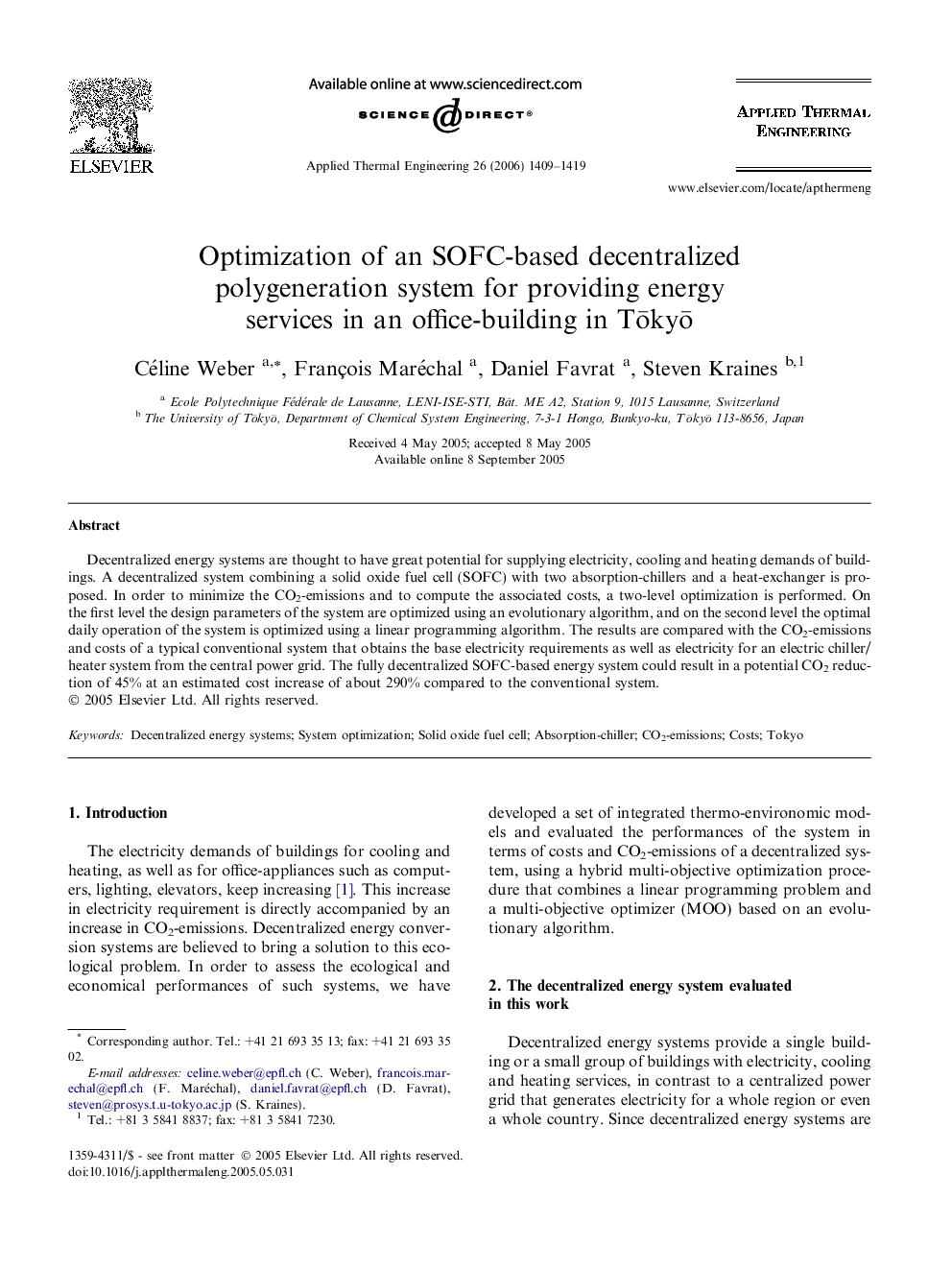| Article ID | Journal | Published Year | Pages | File Type |
|---|---|---|---|---|
| 649617 | Applied Thermal Engineering | 2006 | 11 Pages |
Decentralized energy systems are thought to have great potential for supplying electricity, cooling and heating demands of buildings. A decentralized system combining a solid oxide fuel cell (SOFC) with two absorption-chillers and a heat-exchanger is proposed. In order to minimize the CO2-emissions and to compute the associated costs, a two-level optimization is performed. On the first level the design parameters of the system are optimized using an evolutionary algorithm, and on the second level the optimal daily operation of the system is optimized using a linear programming algorithm. The results are compared with the CO2-emissions and costs of a typical conventional system that obtains the base electricity requirements as well as electricity for an electric chiller/heater system from the central power grid. The fully decentralized SOFC-based energy system could result in a potential CO2 reduction of 45% at an estimated cost increase of about 290% compared to the conventional system.
